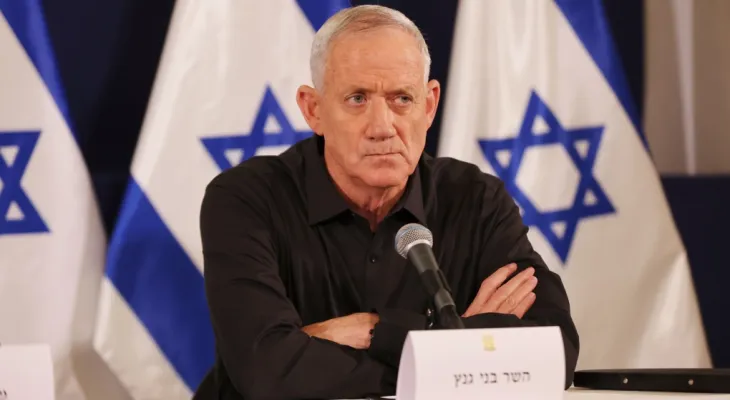Search here
Newspaper
Search here

Arab Canada News
News

Published: April 15, 2024
The unprecedented Iranian attack on Israel early on Sunday represented a shift in Tehran's approach, which has relied on proxies throughout the Middle East since the outbreak of war between Israel and Hamas in October. Attention is now focused on whether Israel will choose to take further military action, while Washington seeks diplomatic measures instead to ease regional tensions.
Iran stated that the attack was in response to an airstrike that was widely blamed on Israel, which destroyed what Iran claims are consulate offices in Syria and killed two Revolutionary Guard generals earlier this month.
Israel reported that all drones and missiles launched by Iran overnight, numbering over 300, were intercepted by its missile defense system, backed by the United States and Britain. The only reported victim was a girl injured in southern Israel, and a missile struck an Israeli airbase, causing minor damage.
However, the commander of the Iranian Revolutionary Guard described the operation as successful.
Mona Yacoubian, Vice President of the Middle East and North Africa Program at the U.S. Institute of Peace, noted that Iran managed to balance its public response to the strike in Damascus while avoiding provoking further Israeli military action, at least initially, which could lead to a much wider conflict.
Yacoubian said, “Both Iran and Israel are capable at this stage of declaring victory and stepping back from the brink, especially since no Israeli civilians were killed.”
However, the world is still waiting for the outcome of the Israeli security cabinet meeting on Sunday. Israeli hardliners pushed for a response, while others suggested restraint, arguing that Israel should focus on bolstering emerging relations with Arab partners.
Defense Minister Benny Gantz stated, “We will build a regional alliance and make Iran pay the price in a way and at a time that suits us.”
For his part, the commander of the Israeli army stated on Monday that the country will respond to the Iranian missile attack.
Lieutenant General Herzi Halevi said, "Israel is still weighing its options. But he said the Iranian strike with missiles and attack drones "will be responded to."
Halevi spoke during a visit to Nevatim Air Base, which Israel claims sustained minor damage in the Iranian attack.
Prime Minister Benjamin Netanyahu is meeting with senior officials to discuss a potential response.
U.S. National Security Council spokesman John Kirby declined to disclose whether the U.S. has been informed or expects to be informed of Israeli response plans. He told reporters on Monday, "We will allow the Israelis to speak to that," and "we are not involved in the decision-making process regarding potential responses."
Analysts noted that Iran sent a message indicating it was ready to escalate and change the rules of engagement in its shadow war with Israel.
Magnus Ranstorp, a strategic advisor at the Swedish Defence University, said, "It’s a warning shot, saying that if Israel violates the rules, there will be consequences."
The Iranian attack has heightened fears that the conflict in Gaza could spiral into regional chaos.
However, Iran asserts that it does not seek all-out war across the region. Foreign Minister Hossein Amir-Abdollahian posted on X, formerly Twitter, that Iran "has no intention of continuing defensive operations" at this stage unless attacked.
Iran emphasized that it targeted Israeli facilities involved in the Damascus strike, not civilians or "economic areas."
After Israel began its attack on Gaza against Hamas, Iran-backed groups participated militarily while Tehran remained on the sidelines. The Lebanese Hezbollah fired rockets at northern Israel, while Houthi rebels in Yemen attacked Western ships in the Red Sea. A broad array of Iranian-backed Iraqi militias attacked U.S. military sites in Iraq and Syria.
Maha Yahya, director of the Carnegie Middle East Center, stated that Tehran is "now prepared to raise the stakes" without relying on proxies.
However, Iran has not escalated beyond that.
She added, “They gave enough warning that this was coming, and I think they knew the drones and missiles would be intercepted before reaching Israeli territory.”
She also pointed out that recent pressures on Israel regarding its conduct in Gaza have now shifted to de-escalating regional tensions instead.
Yacoubian said, "Washington has a critical role to play in avoiding further escalation."
Elad Schavit, who heads the U.S.-Israeli Committee, a research program at the Israeli National Security Studies Institute, noted that further military action by Israel is unpopular among its allies, including the United States.
John Kirby, the White House National Security spokesman, told NBC that President Joe Biden does not want an escalation in the regional conflict or a "wider war" with Iran, and that he is "personally working on the diplomatic side of this matter."
Emergency meetings of the Group of Seven – the informal assembly of industrialized nations, including the United States, the United Kingdom, and France – and the United Nations Security Council were convened on Sunday.
Participants at the G7 meeting unanimously condemned the Iranian attack, stating, "We are prepared to take further action now in response to more destabilizing initiatives."
Comments